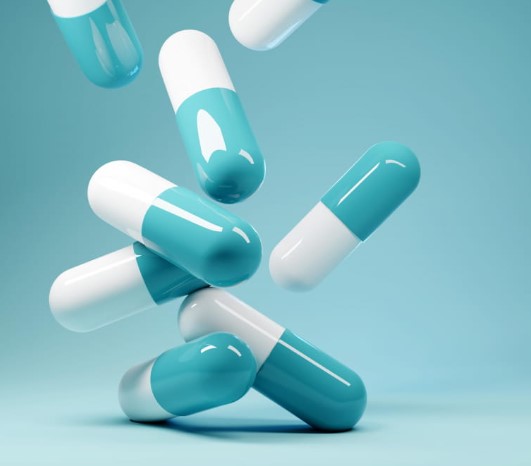antibiotics in beef

Photo is illustrative in nature. From open sources.
Beef is one of the world's most popular meats, but it may contain antibiotics that are used to treat and prevent infections in animals. Antibiotics are medicines that kill bacteria or prevent them from growing and multiplying.
Cows can receive antibiotics through feed, water or injections. Antibiotics may be used to prevent disease or to treat infections. If a cow receives antibiotics, they can accumulate in her tissues, including the muscles used to produce beef.
However, if the use of antibiotics is not properly controlled, then they can accumulate in meat and the environment. This can lead to the development of antibiotic resistance in bacteria, making future infections more difficult to treat.
In addition, antibiotics can get into beef through animal waste. If waste is not disposed of properly, antibiotics can end up in soil and water, contaminating the environment. This can affect the animal and plant life, as well as the health of people who consume beef and other meat products.
To avoid these problems, it is necessary to control the use of antibiotics in livestock production. Cows should receive only the required amount of antibiotics, and treatment should be carried out only under the supervision of a veterinarian. In addition, strict regulations must be developed for the disposal of animal waste in order to avoid environmental pollution.
In conclusion, antibiotics are an important tool for treating infections in animals. However, their use must be controlled to avoid negative consequences for the environment and human health. Strict regulations need to be developed for animal husbandry and waste disposal to ensure the safety of our food and the environment.
Read together with it:
- Родители забирают всю мою зарплату и погашают свои долгиМне 22 года. Живу в Подмосковье с родителями и младшей сестренкой. Не замужем, детей нет. Есть любимая работа. Руки, ноги есть.Что же я тут забыла, спросите Вы? К сожалению, у вышеперечисленного мною, есть обратная сторона медали. Итак, начнем с жизни с родителями.В свои 22 года, я получаю не плохую...
- I found a woman who is not embarrassed by my appearanceI often read stories on this site and decided to confess myself. I don’t know how to speak beautifully, and I can’t, to be honest. So don't judge harshly.I was born into a complete family. Father ,mother . Everything is like everyone else. My childhood didn't go well. The father was a domestic tyran...
- The husband decided that it was better to get a divorce than to look for a jobMy husband and I have been married for 5 years. We moved to another city and rented an apartment here. Two years later my beloved appeareddaughter . We lived not without quarrels, but we tried not to find outrelationship with a child. A year agoMy husband was laid off at work and scandals began to h...
- A common-law husband does not need a real familyIn a civil marriage for more than 8 years. Once upon a time, my relatives’ questions about why we don’t officially sign, why the young man doesn’t propose to me, why we don’t have children, irritated me and seemed funny. But now I'm not laughing anymore.I didn't notice it before, but looking back, I...
- Reward for ForgivenessBy 2000, my parents left me without a roof over my head, saying: “It’s okay, you’ll earn money yourself.” Where can a doctor in our country earn an apartment?I wandered around strange corners for 10 years, rented rooms with hostesses, and earned money. I was able to save a little and was looking for...
- Nobody wants to talk to meI am from Moscow. I don't understand why people don't want to communicate with me. I study at an institution where all (okay, not all, but many) students have similar interests.No, I'm not being ignored. I communicate with some people who are happy to see me. But they don't consider me friends. They...
- Husband's unceremonious brotherI already wrote my story about my brother herehusband who constantly comes to visit. At that time, I made it clear to my husband’s brother that I considered his visits too frequent and his behavior unacceptable. Then I talked to my husband, gently. He reacted calmly.3 weeks passed in peace and quiet...
- Mother-in-law violated the will of her late daughter-in-lawI leftmarry a man who has 2 marriages behind him, the first, as usual, broke up due to his youth, the second ended in great misfortune -wife died of cancer.From this marriage there was a little girl left, whom I later adopted. There are two children from his first marriage, whom theyMom kicked them ...
- Mom considers me a second-class citizenI am very offended by my mother.I had a bad luckan affair with one man. I am 26 years old, he is 38. We met on vacation. Hismother runs a hotel for tourists by the sea. He helps her, and I came to rest with them on the advice of friends.It so happened that I really liked him. He is beautifula man an...
- I can't quit because of quarantineI have been working in food production since July last year. At first everything was fine, until after another move inside the office,the general's wife did not sit with him in the office. That's it, it became impossible to work. They scream, scream constantly. They yell and swear. The CEO's wife an...

